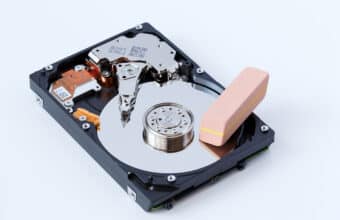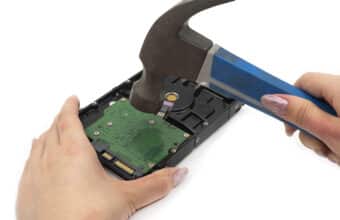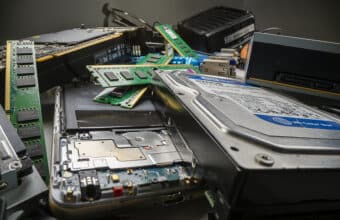Data Destruction
-
Data Protection Tips: 3 Major Benefits of Data Minimization
As businesses continue to leverage consumer information to make better financial decisions and improve their targeted marketing strategies, the amount of data being stored is skyrocketing, and that represents a serious security threat for organizations that fail to adhere to data minimization best practices. Adopting effective data minimization practices is a smart way to not […]
read more -
Document Destruction Policy Refresh: What Needs Updating and How Often?
If there’s one thing you want to make sure your business has nailed down, it’s your document destruction policy. A data breach can not only come with serious monetary consequences but also do irreparable harm to your organization’s reputation. With that being said, you don’t just want a strong, clear document destruction policy — you […]
read more -
Sanitize or Erase: Which Is Best for SSDs?
Solid state drives (SSDs) offer many benefits over their hard drive (HDD) counterparts. With faster read/write times, better performance, much quieter sounds, and lower power consumption, SSDs are, all-in-all, a powerful replacement for HDDs. In most situations, they can be treated similarly once it’s time to destroy or otherwise dispose of them. Still, when it […]
read more -
What Is Asset Recovery?
IT asset management refers to ongoing operations that require paying continuous attention to finances, computing equipment, and other IT-related assets. Managing the supply chain is difficult enough without wasting valuable resources and leaving insecure data at risk of being stolen by malicious actors. Therefore, every piece of software and hardware that exists in the IT […]
read more -
End-of-Life Data Destruction: What Is It and Who’s Responsible?
Digital information offers many benefits to today’s businesses. It gives leaders the knowledge they need to make informed decisions while also making it easier for teams to improve the performance of their ongoing projects. When data is no longer needed, though, it becomes a liability to your company, so it’s important to have a strong […]
read more -
IT Asset Disposal Implications: Why It’s Important to Hire a Professional
IT assets provide important benefits that most companies couldn’t go without. Not only do they reduce workloads and paperwork, but they also eliminate waste and allow business leaders to make better decisions. All in all, IT assets help businesses operate more efficiently, giving them room to grow and streamline their processes over time. However, these […]
read more -
3 Signs Your Company’s Devices Are Failing and Need to Be Replaced
Device failures can be catastrophic. Not only can users lose whatever work they’ve been doing, but they can also lose important data, making it difficult to continue operations. For many businesses, failed devices can lead to unexpected downtimes and loss of profits, leaving them vulnerable to their competition. Failures can occur for many reasons, from […]
read more -
3 Key Elements Every ITAD Program Should Have
When old equipment malfunctions, it’s important to dispose of it properly. While disposal might seem like a simple proposition, there are many factors to consider. Specialized knowledge is required to reduce waste, follow safety protocols, and properly handle data storage devices. IT Asset Disposal (ITAD) is the process of responsibly selling or scrapping old IT […]
read more -
What Exactly Is ITAD?
What Exactly Is ITAD? Levi Hentges, Director of Business Development with SEAM When speaking with businesses in our community, I often hear: “I had no idea you guys existed!” This comes as no surprise. Most organizations only consider IT Asset Disposition, or ITAD, as an afterthought when they have to “get rid of stuff”. Computers, […]
read more














